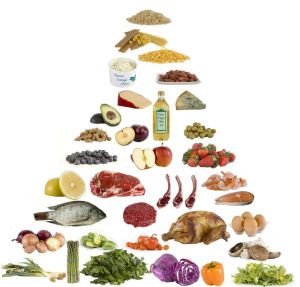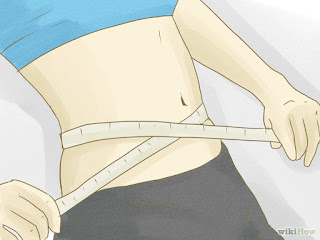A new PBS documentary and Bon Appetit’s January issue espouse a radically moderate approach to eating.
Abstinence, we are usually told around this time of year, makes the heart grow stronger. It’s why Dry January, which started in the green and pleasantly alcoholic land of Britain a few years ago before reaching the U.S., is increasingly being touted as a good and worthy thing to do, and why so many people are currently making plans to remove whole food groups from their diet: carbs, fat, Terry’s Chocolate Oranges. The key to health, books and websites and dietitians and former presidents reveal, is a process of elimination. It’s going without. It’s getting through the darkest, coldest month of the year without so much as a snifter of antioxidant-rich Cabernet.
The problem with giving things up, though, is that inevitably it creates a void in one’s diet that only Reese’s pieces and a family-sized wheel of brie can fill. Then there’s the fact that so many abstinence-espousing programs require spending money on things; on Whole 30 cookbooks and Weight Watchers memberships and $10 bottles of bone broth. For a process that supposedly involves cutting things out, there seems to be an awful lot to take in.
This, Michael Pollan posits, is the problem with food: It’s gotten extraordinarily complicated. The writer and sustainable-eating advocate has written several books on how the simple business of eating has become a minefield in which earnest Westerners try to tiptoe around gooey, genetically engineered sugar bombs without setting off an explosion of calories, corn sugar, and cancer. In Defense of Food, published in 2008, offers a “manifesto” for eaters (i.e. humans) that’s breathtaking in its seven-word simplicity: Eat Food. Not Too Much. Mostly Plants. This mantra is repeated once more in a documentary based on the book that airs Wednesday night on PBS, and it’s felt in the January issue of Bon Appetit, which is based almost entirely around the concept of “healthy-ish” eating: “delicious, comforting home cooking that just happens to be kinda good for you.”
Healthy-ish, as a concept, isn’t new. In fact, it’s the food industry’s equivalent of your mom telling you to finish your broccoli before you dive into the Twinkies, only dressed up with a sexy hyphenated coverline and some mouthwatering photos of chicken seared in a cast-iron skillet. “Healthy-ish” shouldn’t feel revolutionary. By its very definition it’s something of a big old foodie shrug—an acknowledgment that if we can’t all subsist on steamed fish and vegetables all of the time, we can at least offset the steak dinner for having salad for lunch. It is, as per Pollan at least, a philosophy that everything is best enjoyed in moderation, including moderation.
So why does it feel so subversive?
The reason, as explained by both manifestations of In Defense of Food, is that industries upon industries, even entire religions, have been predicated on the premise that eating (certain things) is bad and will kill you. The documentary draws on years of food-related quackery to illustrate how ingrained fearing food is. It looks back to John Harvey Kellogg’s sanitariums in the late 19th century, in which the renowned Seventh Day Adventist, convinced that protein was bad for you and that constipation was caused by a buildup of bacteria in the colon, gave prescriptions for yogurt enemas, all-grape diets, and chewing each bite of food 20 times before you swallow.
Kellogg is better-known now as the pioneer behind breakfast cereal, which he believed would help rid the world of the evil that is masturbation, but his experiments with fad diets have informed much of the thinking behind modern “healthy” eating regimes in the ways in which they take things to extremes. Paleo diets, although structured around an excess of protein that Kellogg would faint at, are based on the premise that humans haven’t yet evolved to eat grains, legumes, and dairy (the British Dietetic Association counters that they’re “a sure-fire way to develop nutrient deficiencies”). Veganism, by contrast, is touted by the Physician’s Committee for Responsible Medicine as “the optimal way to meet your nutritional needs” (this may well be true, but it’s also the optimal way to get disinvited from a dinner party). Both involve intensive planning and work. Neither allows any leeway for an 11 a.m. office Krispy Kreme.
What’s so compelling about Pollan’s manifesto, by contrast, is that he obviously loves food, and not in a gets-orgiastic-over-fiber kind of way. Although the documentary is less nuanced and richly drawn than his writing, it communicates much of the passion he feels for simple pleasures like a crunchy, well-dressed salad, or a zesty hunk of warm sourdough bread. In a modern nutritional environment that still can’t decide whether protein is an important building block for human growth or a source of cancer-causing chemicals, there’s something comforting about seeing such a calming soul navigate his way between a golden rotisserie chicken and a buffalo wing, engineered in every way to tickle the relevant taste buds (sweet, salty, fatty, twice-fried).
What’s implicitly communicated by In Defense of Food, and wholly preached by Bon Appetit, is that the key to all this starts at home with the simple act of cooking. “If it came from a plant, eat it,” Pollan says. “If it was made in a plant, don’t.” The reason for this is that unlike large-scale food purveyors, humans are entirely less likely to put things like sodium stearoyl lactylate and soy lecithin in the meals they prepare at home. If you’re cooking dinner, chances are you’re baking potatoes rather than tossing them in a deep fryer, and steaming vegetables instead of dousing them in butter and salt.
“We’re not ascetic,” writes Bon Appetit’s editor, Adam Rapoport, in his January letter to readers. “Instead we think about what we eat, and when and why we eat it. We indulge when the situation arises ... and we try to eat smart other times.” It’s a food philosophy that’s sensible, moderate, conservative, and sound, none of which are particularly sexy qualities when you’re searching for a quick fix to atone for the sins of holiday overindulgence. But unlike going low-carb or alcohol-free, or (shudder) for a yogurt enema, eating healthy-ish is something most people can bear, even long after January rolls out.
Follow me on X, the former Twitter, @ray0369 to get a link to my latest posts.
If you want to lose your body fat look for my e-books at the websites listed below. You’ll get information on Healthy eating, exercise, and diet. Instead of spending hours on the internet reading dozens of posts, you can save time by picking up one of my e-books. There are two e-books. “How Bad Do You Want To Lose Weight?” is available at all the online bookstores selling for $3.99. Go to any of the websites below and search the title to find my e-book. This book gives you all you need to lose weight without spending money on gym memberships, diet plans, or meal plans.
Look for my first book at Amazon.com, bn.com, iBooks, Kobo.com, Scribd.com, or Gardner Books in the U.K.
My new e-book is available on Smashwords.com and other online bookstores. Just type “getting to a Healthy Weight” in the search box at the top of the home page.
Look for my podcast by searching “How Bad Do You Want To Lose Weight” on the podcast app that you use. You’ll see a piece of my book cover.












